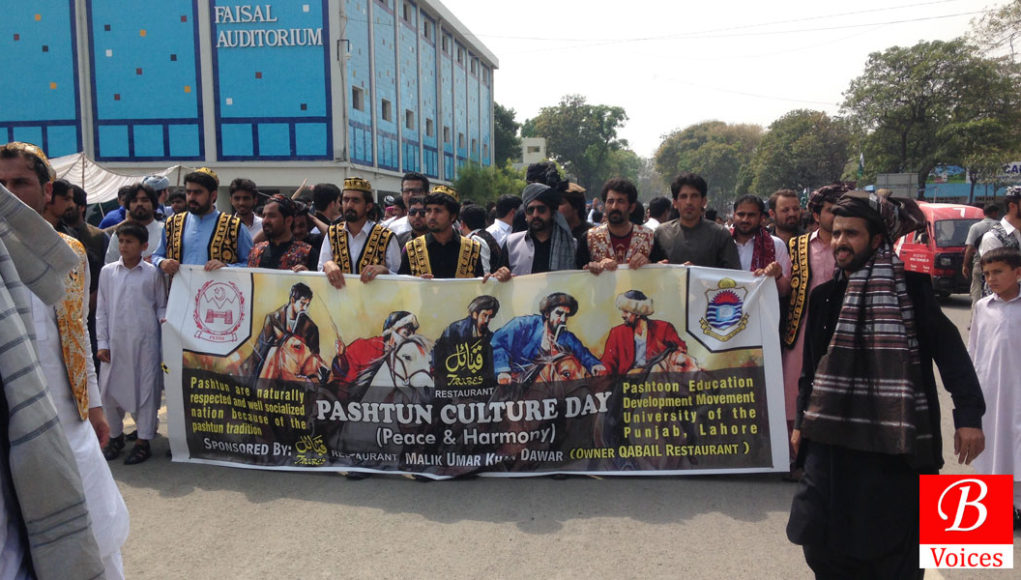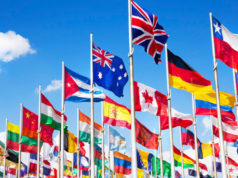Ayaz Ahmed
The recent clashes between the Islami Jamiat-e-Talaba (IJT) and Pakhtun students on the Punjab University campus clearly reflect the simmering intolerance, ethnicity and Islamism in the country. Since the 1950s, the IJT has kept resorting to violence on campuses against its rival student factions in order to forcefully disseminate its dogmatic version of Islamic in public sector educational institutions.
Five students were reported to have received critical injuries on account of the violent clashes between the IJT and Pashtun students in the country’s oldest university. That was not the first vigilante attack blatantly carried out by the IJT. To maintain its superiority on the campus of the same university, the student wing of the Jamaat-e-Islami constantly remained at loggerheads with the National Student Federation (NSF) from the 1960s to 1970s and with the Peoples Student Federation (PSF) from the 1980s to 1990s.
Read also: IJT Militancy in Punjab University: An Eyewitness Account
What is pertinent is to mention that student organizations are established on campuses of universities to facilitate learning activities in educational institutions. Sadly, in our country, some hydra-headed individuals and ultra-rightwing political parties have continued to systematically exploit these groups to feather their political nests through malicious vandalism and lynching of those students who are associated with rival parties.
Besides the Punjab University, almost all public sector educational institutions have continued to experience intermittent clashes, sometimes deadly, amongst unbridled student groups since the 1970s. When the MQM called the shot in urban Sindh, Karachi University saw some of the worst infightings between the All Pakistan Muttahida Students Organization (APMSO) and the IJT. The bastion of learning was turned into an ugly battlefield by the self-centered student groups.
In the same way, the Federal Urdu University has also seen its share of disrupting clashes between the IJT and the PSF. In this university, I saw students bleeding and lying unconscious on the floor due to violent fighting between the IJT and the PSF. Sometimes, the Rangers and the police had to conduct extensive search operations for hours to restore normalcy and order on the campus. Arguably, these student factions employ violence in order to promote their materialistic interests on campuses.
Though somehow controlled by the presence of Rangers personnel on campuses, our unrestrained student groups still resort to different sorts of illegitimate and violent means to grind their axes in universities. Since the country is already plagued by a low education ratio with the deteriorating quality, it does not need such student groups which use wanton violence to disrupt educational activities on campuses.
What members of the country’s student groups should not forget is that they need to provide a clean and comfortable environment where students, staff and faculty members can relax, interact socially and perform quality curricular and extracurricular activities. More importantly, these groups are also responsible for facilitating unity in diversity and maintaining an atmosphere where all individuals and groups feel empowered.
Since I was a graduate student of a public sector university, I personally experienced deadly clashes and recurrent bouts of violence unleashed by some self-seeking student factions to rule the roost on the campus. In each month, some minor scuffles between two student groups occurred which ultimately escalated into ugly clashes. Violent members of these groups considered it an act of bravery to smash windows, disrupt classes and even harshly punch their teachers. Sometimes, these clashes turned into bloody fighting, leaving the university red with blood stains. Is this what we learn from our education institutions?
What should not be forgotten is that student groups rely on violent means to maintain their supremacy on campuses in order to attain some vested and sectional interests. Evidently, almost all student factions are intrinsically linked to the country’s mainstream political parties. So, they are somehow funded by these so-called democratic parties which use student groups as an instrument to disseminate their ideologies and promote their interests in educational institutions.
Here the main issue emerges; given the dizzying level of intolerance and obscurantism in the country, followers of one student group often squabble with those of another due to their divergent interests. What is sad to note is that whenever the police arrest those who take the law into their hand on campuses, their political masters come forward and get them released by exerting pressure on the police. As a consequence, such political backing emboldens students to violently disturb the educational environment on campuses.
The majority of student groups are also engrossed in a perpetual tug of war on campuses in order to further their materialistic objectives. They use all means fair or foul to maintain their say in universities’ affairs with the intent to grab both administrative and teaching vacancies for their incompetent members.
This is the underlying reason why most administrative posts in public sector universities are occupied by inept members of student groups. Therefore, this has deprived our public sector universities of skilled and able administrative staff. That is why our educational institutions take months, if not years, to issue degree and mark certificates to students.
A large number of supporters of student groups hardly attend classes on the regular basis because they spend much of their time in undertaking aimless activities of their groups. When examinations draw near, such students have neither the required attendance ratio nor requisite knowledge to acquire passing marks in their subjects. Under such circumstances, student groups apply pressure tactics and intimidate teachers into giving adequate marks to their members.
Sometimes, under pressure, teachers allocate the top three positions to those students who have never attended classes. Moreover, members of student groups can easily get admission for MPhil and PhD programmes owing to their intimate connections with chairmen of respective departments. All this discourages hard-working and intelligent students from burning the midnight oil for their examinations.
As seen, a large number of teachers are either politically or ideologically linked to student groups. Due to this close affinity, they give special favours to the members of their like-minded groups. In return, such teachers get job security from crooked politicians. Due to such practices of favouritism, meritocracy has disappeared on campuses of major public sector universities all over the country.
The powder keg in public sector universities will explode if the government lifts the long-lasting ban on student unions without giving a serious thought to this matter. First and foremost, the party in power should realise that our student unions are actually sub-branches of corrupt political parties, created to cultivate political influence on campuses.
Before restoring student unions, a strict code of conduct should be evolved and stringently executed on campuses of all public sector universities. Those who violate this code must be brought to book irrespective of their political affiliations.
Disclaimer: Views expressed in this article are those of the author and Balochistan Voices not necessarily agrees with them.
Share your comments!








